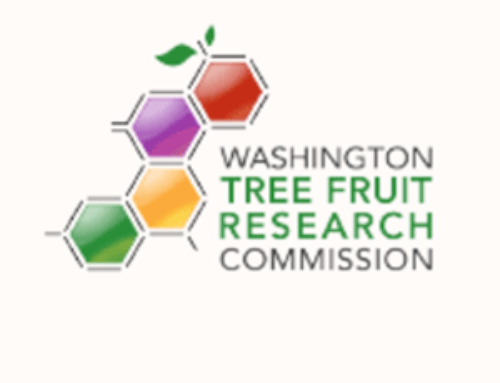
Amit Dhingra Good Fruit Grower file
Scientists at Washington State University have discovered ripening compounds that show promise for making pears ripen more predictably.
Pears are mature, but unripe and hard when they are harvested, and some varieties, such as d’Anjou, require a period of chilling in storage before they will ripen.
Ripening problems can also occur when pears are treated with MCP (1-methylcyclopropene), a product used to maintain the quality of apples in storage.
It works by binding to the ethylene receptors in the fruit, blocking the action of the ripening hormone ethylene. This allows packers to lengthen the marketing window and to ship fruit to distant markets without deterioration, but there have been reports of pears failing to ripen properly after treatment.
Dr. Amit Dhingra, genomicist at WSU and founder of Phytelligence in Pullman, Washington, said it appears to be an oversimplication to say that the ripening process is regulated by ethylene. It is a very complex process, and, although ethylene does play a role, several different pathways are involved.
When he and his colleagues compared MCP-treated pears with untreated pears, they found that more than just the ethylene pathway was blocked in the treated fruit, and they were able to identify a number of ripening compounds that could reactivate the fruit and release ethylene to allow ripening after storage.
Pears treated with a low concentration of a ripening compound ripened within five days of treatment and became juicy and aromatic with a pressure of four pounds, Dhingra reported at the Washington State Horticultural Association’s annual meeting in December. In contrast, MCP-treated fruit that were not treated with a ripening compound became rubbery and only softened to nine pounds.
Most of the compounds, which Dhingra declined to name because of intellectual property concerns, occur naturally in plants. When the scientists applied them to fruit, they triggered the conversion of starch to sugar in the fruit, releasing ethylene as a byproduct within 48 hours. This runs contrary to the generally accepted idea that ethylene triggers the conversion of starch to sugars.
Dhingra envisions that the ripening compounds, if commercialized, could help ensure that MCP-treated pears ripen to a uniform quality and could be useful for ensuring good eating quality in fresh sliced pears that had been treated with MCP. •






Leave A Comment